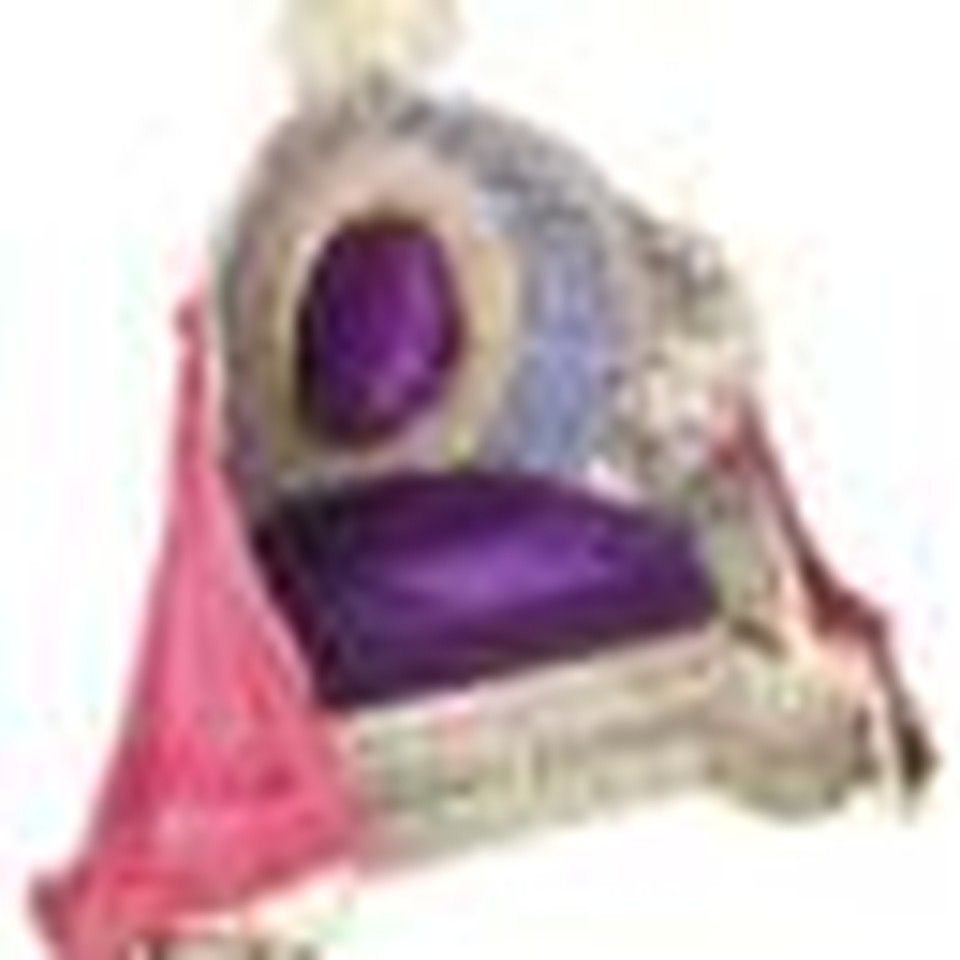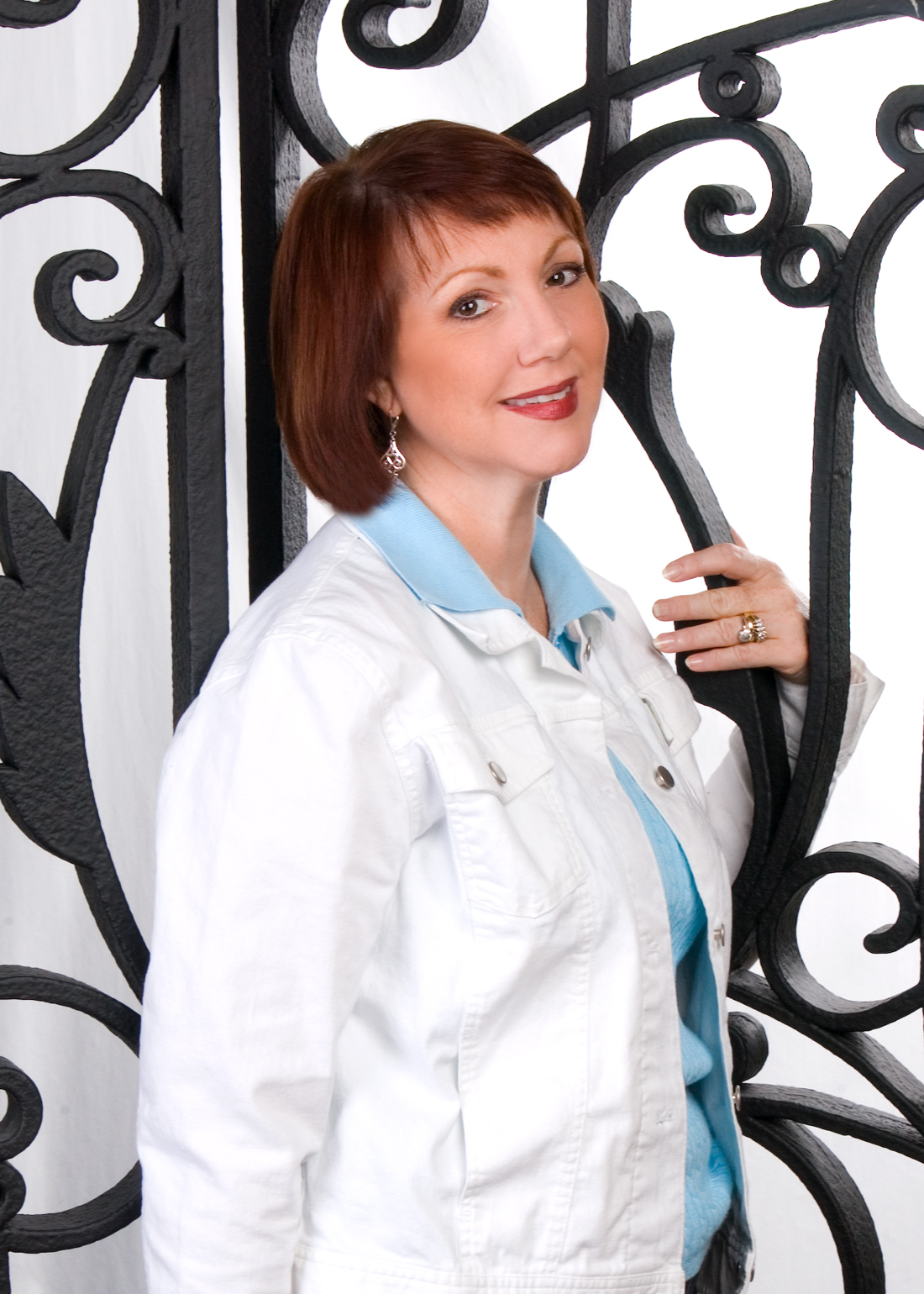What Are We Singing: Before the Throne of God Above

I knew the story, of course.
A Jewish girl from the tribe of Benjamin, living in Persian captivity in Susa is taken by King Xerxes as a virgin bride. Although he is both her husband and her king, Xerxes is unaware of Esther's family background and nationality. Later, one of the king's nobles, Haman, becomes angry when Mordecai (Esther's cousin who reared her), refuses to bow down to him. Haman used this as a springboard for destroying all the Jews, unaware - I presume - that the queen was Jewish, as well.
When Mordecai learns of Haman's ploy, he manages to get word to Esther and asks for her aid in getting the king to reverse the edict for their annihilation. Esther reminds Mordecai that for her to approach the king without being called puts her in jeopardy of death - as was their custom. Hearing this, Mordecai is quick to remind Esther that just because she is the queen does not mean she is exempt.
"For if you remain silent at this time, relief and deliverance for the Jews will arise from another place, but you and your father's family will perish. And who knows but that you have come to royal position for such a time as this" (Esther 4: 14).Esther then orders a time of fasting and praying. In three days, she said, I will go to the king, even though it is unlawful for her to do so.
"And if I perish, I perish" (Esther 4:16).And Then I Saw the Movie
Did you, like me, see one night with the king? Released in 2007, watching it brought about emotions I'd not expected. It's one thing, you see, to read the story; we know how it's going to come out. We heard it in Sunday school when we were children. As adults we easily read ahead from Esther 4:16 to 5:1 (all of one verse stands between them). Esther enters the king's hall, the king is pleased with her, he extends his royal scepter, and she isn't faced with charges satisfied only by death.
But when I saw the movie I agonized with Esther (played by Tiffany Dupont) as she prepared herself for this audience with the king. I held my breath as she took the necessary steps of preparation and then made those first few steps. Next came the scene where she is running in the rain (so much for all that time spent in preparation). Looking something like a drowned rat (albeit a most beautiful one), Esther bursts into the king's hall. There are those standing near Xerxes who are immediately rankled by her hutzpah. Swords are drawn. But Esther looks up at the king with her large doe eyes and - just as the sword is about to descend - he extends his scepter.
Because he is pleased with her …Before the Throne of God Above
I had a most amazing dream a few years ago. I dreamed I was walking into a large and beautiful palace. In the open foyer were guards all about but I wasn't intimidated by their presence. Though I had no memory of ever coming this way before, the way was not foreign to me. To my right was a sweeping stone staircase. Beckoned by it, I took each step one by one until I'd reached the top. More guards stood in a wide hallway. They neither acknowledged nor ignored me. I soon found a narrow passageway, which I took, even though it was dark. As I walked, I looked down at my feet. A light illuminated only my feet and the path of the next step. Finally I reached an arch-shaped doorway flanked by two more guards. Without my having said a word, one of them reached for the doorknob and twisted. The door opened wide, exposing another large room, soaked in sunshine. At the top of large columns hung gold hoops. Strung between them was white linen, which billowed in soft waves. I entered the room and as I did a light of brilliant colors shone on a gold throne. Seated upon it was God (no, I couldn't see his face) and standing to his right was Jesus, dressed in glorious robes, looking as handsome as I'd always imaged him to be. He extended a hand as he said, "This one is mine, Father."
But there was another presence in the room, one that did not want me to take the necessary steps to reach the Throne of Grace and Mercy. I felt momentary shame mixed with fear until Jesus turned toward "it" and spoke firmly, "This one is mine!"
What Scripture Makes ClearScripture makes it clear; Jesus - God the Son - is standing at the right hand of God the Father.
The LORD said to my Lord: "Sit at my right hand until I make your enemies a footstool for your feet" (psalm 110:1).This verse of the Scriptures, penned by David, is of such importance, the New Testament authors repeated it five times (matthew 22: 44, mark 12: 36, luke 20: 42; acts 2:34; hebrews 1:13; for further study, also read: mark 16: 19; luke 22: 69; acts 7: 55-56; romans 8:34). Further study shows that as the one standing at the right hand of God, Jesus serves both as mediator for those who boldly come before the throne and as High Priest in the order of melchizedek. While Satan has no place nor business in the Throne Room, we are assured by Scripture that he is there, ready to remind us of all we have done wrong and of our lack of worth to be in the presence of God.
I am reminded of one of my favorite lines from Gone with the Wind. Aunt Pittypat declares, "Yankees in Georgia? My heavens, how did they get in here?"
And furthermore - one can imagine she wonders - what on earth are they doing there? (They were burning the great state from which I hail to the ground; that's what they were doing!)
Polar Opposites
So, while Scripture tells us that Jesus stands at the right hand of God, it tells us there is another presence in the room. Zechariah 3:1, 2a reads:
Then he showed me Joshua (The NIV Study Bible notes reveal: Joshua. The same person's name is spelled "Jeshua" in Ezra and Nehemiah … Here he represents the sinful nation of Israel … The names "Joshua" and "Jeshua" were common in ancient times. The Greek equivalent is spelled "Jesus" in English, and all three forms of the name mean "The LORD saves.") the high priest standing before the angel of the Lord, and Satan standing at his right side to accuse him. The Lord said to Satan, "The Lord rebuke you, Satan! The Lord, who has chosen Jerusalem, rebuke you!" (parenthetical mine)
Zondervan's NIV Commentary (Kenneth L. Barker & John Kohlenberger III, Consulting Editors (Zondervan Publishing House, Grand Rapids, MI. 1994), pg. 1521) concerning this verse says: Although the scene is not basically a legal one, Satan's accusation invests it with a judicial character. The right side was the place of accusation under the law (psalm 109:6) …
This gives us a new picture. One of God's children stands before the throne. To the right stands Jesus. To his right stands the accuser (in Hebrew, Satan). To get to the Father - to destroy as Sherman destroyed the landscape and cities of Georgia - Satan must get past the Son. And, for those who belong to the Son, this is impossible.
Then I heard a loud voice in heaven say: "Now have come the salvation and the power and the kingdom of our God, and the authority of his Christ. For the accuser of our brothers, who accuses them before our God day and night, has been hurled down. They overcame him by the blood of the Lamb…" Revelation 12:10, 11a.
The Song
For the better part of this past summer, I lay on the sofa and dealt with sciatica. One thing I can attest to, when you are ill - sick for any length of time - the accuser has a unique way of making you feel worse than you already do.
Knowing I was having a rough time of it, a friend sent me the youtube link to Selah's version of Before the Throne of God Above (Copyright PDI Worship, Words and Music by Charitie Lees Bancroft and Vikki Cook).
I have since played this video time and again and am always awed both by the beauty of the music and the truth of the lyrics. We must never forget - none of us - that the great accuser is no match for the Great I AM. His words of deceit cannot be set higher in our hearts to the words of Truth. His death wish is diminished in the saving, eternal life-giving blood of Christ.
Our Bridegroom, our High Priest, our Savior … the Lamb.
Eva Marie Everson is the coauthor of the award-winningReflections of God's Holy Land and the recently released Things Left Unspoken. For more information about Eva Marie or to book her to speak at your next event, go twww.EvaMarieEverson.com
Original publication date: September 14, 2009
Originally published April 21, 2014.





